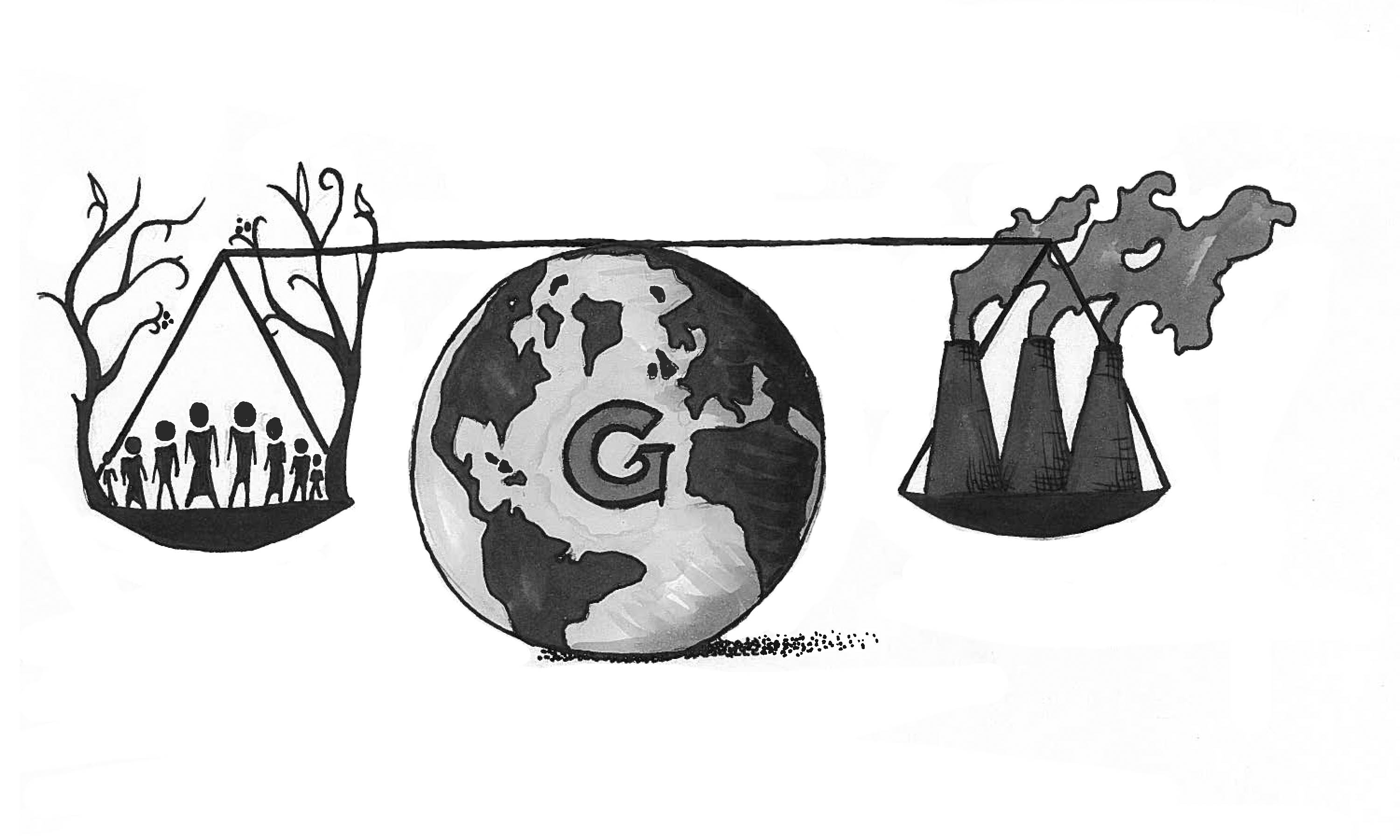Two weeks ago, I attended the Power Up! Divest Now! Student Convergence at Swarthmore College in Pennsylvania. Students working on divestment from across the country gathered to learn from each other and share tools and ideas to help build a student movement. We heard from activists on the frontlines of the fight against climate injustice, living and fighting in communities poisoned by the fossil fuel companies and affected by global warming. They shared stories of illness, death, and oppression, all emanating from the fossil fuel companies embedded in their areas.
Often when we’re talking about climate change, we talk about the future. We talk about how if fossil fuel companies burn all of their reserves, the global temperature will rise to unsustainable, even uninhabitable levels. However, we tend to forget the current and real threat posed by these same companies to people all around us. We forget that people today are getting sick, losing access to water and land, and having their rights violated every day.
It’s easy to separate ourselves from people in need, from the future. It’s easy to write off the fight against climate change and the fight for divestment as something that doesn’t matter now. It’s easy to detach ourselves from people in need when it doesn’t affect us and when we don’t see these things happening in front of us, especially from our position of privilege.
I’ve been hearing these stories for a while a now. I’ve seen the pictures of people lighting their tap water on fire and the devastation caused to the tar sands in Canada. I’ve met people who don’t have any drinkable water, due by the fracking site nearby, and whose families and friends are getting sick. I come from a community that hasn’t been infected like this, but that has the potential to be, even if it’s a few years away. My fear, and when I say fear, I mean a deep anxiety that stresses me out more than an organic chemistry exam or financial aid, is that these stories I hear and see will be reflected in my mountains, destroying my North Carolina community.
When we refuse to act with the individuals affected by climate change, we condemn their struggles and suffering to irrelevance. When we sit back and distance ourselves from climate change and pollution just because we’re not the ones getting sick, we are belittling and ignoring those who are. We hear these stories, we listen to their tellers, and we shake our heads and say “that’s too bad” and go on studying or running a school or investing in the very companies perpetuating environmental injustice on our planet. By failing to join the fight to stop this injustice, we become party to it, standing idly by as communities that could be ours under different circumstance are destroyed for the sake of greed and development.
How did we reach the point where we can watch the world burn around us and watch our friends and neighbors lose their rights and their lives? And more importantly, what right do we have to ignore those stories for the sake of profit and individual gain? Most of these frontline groups are in minority and low-income communities and, just like the fight for labor, for immigrant rights, and for fair food, the fight against fossil fuel companies is a fight against the systemic violence that perpetuates apathy and greed.
As soon as we say “that’s bad for those people, but…”, we are contributing to the power structure that is condemning, denigrating, and destroying communities. The question I keep asking is how can we justify this to ourselves? It’s not that we don’t know the effects of the fossil fuel industry on people today—not in a few years or decades, but today. We know that they’re killing the land. And so, with full knowledge, how can we put ourselves above these communities?
I’m not encouraging people to swoop in on these affected communities with a cape and save everything. I’m encouraging people to fight in ways they can. I’m a Georgetown student who is pretty removed from the frontlines of environmental degradation. So what can I do? I can fight for Georgetown to divest from these companies that are devastating the people around us. That’s something that students can do, they can hold their universities responsible for their investments. And yes, divestment by itself will not reverse the entirety of injustice inflicted upon the world by fossil fuel companies, but it’s a step. The fight for divestment isn’t just about the fight against the global temperature rising; it’s about fighting for those communities that are facing the threat posed by the fossil fuel industry today.
Divestment isn’t simply withdrawing financial holdings from these companies, it’s withdrawing Georgetown’s investment in the violence and oppression directed at these communities. It’s a tactic, just like pipeline blockades, petitions, giant rallies, and tree-sits. In one of the most pressing justice issues facing us, we have to use all strategies and all steps in order to change. And we can change things. We, as students, can fight and win.






